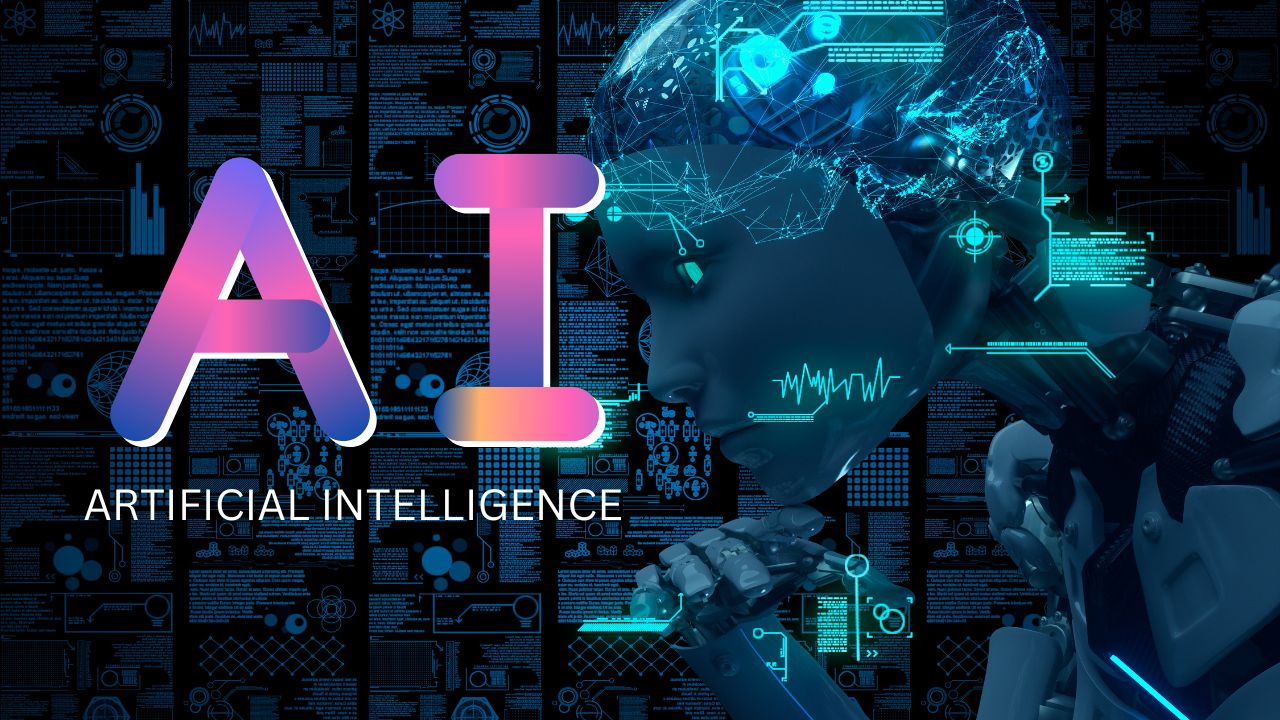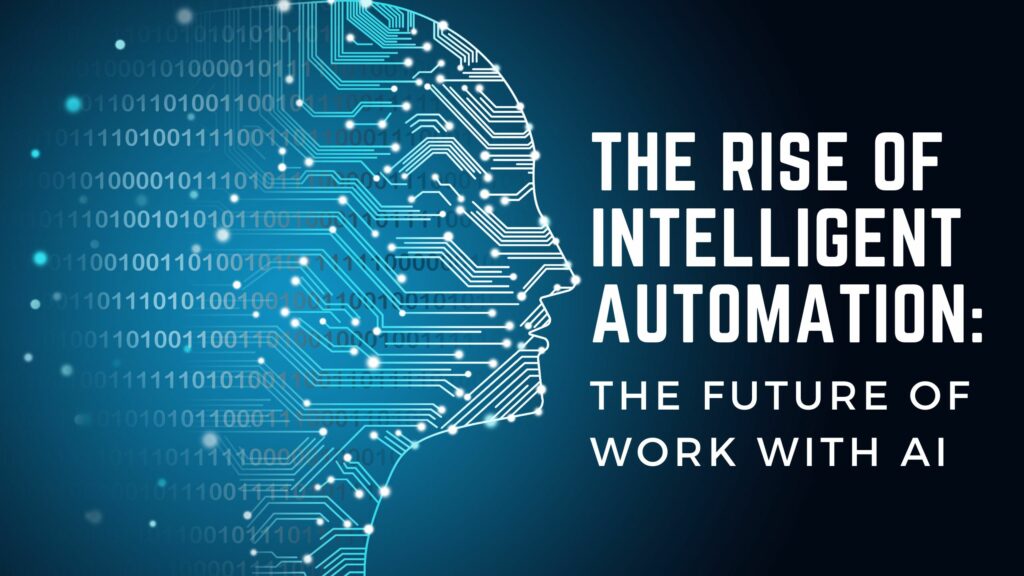It can be a challenge of its own to untangle the jargon that often swirls around these topics. However, we can easily separate intelligent automation from artificial intelligence when we break down the differences. In the broadest sense, artificial intelligence uses problem-solving as a tool, while intelligent automation looks to use many tools together to tackle big issues. In this article, we will help you better understand intelligent automation with AI.
What is Artificial Intelligence?

To keep things simple, we refer only to the current applications of “AI” here—not to hypothetical software that could draw original conclusions or make fully independent decisions. Artificial intelligence is the result of decades of research. Deep diving into machine learning algorithms powered by neural networks. We can also include “deep learning” on extensive datasets. An algorithm that is well-trained can perform various tasks, including recognizing image contents, identifying faces, comprehending document contents, and other similar functions.
AI applications that are trained for a specific purpose can excel at sorting and classifying both structured and unstructured data. They can provide deep insights into trends and extensive analysis of historical data, revealing new patterns and trends that help businesses improve.
What is Intelligent Automation?
Many businesses across disparate industries, such as healthcare and finance, have relied on automation to remain competitive. Rule-based software products, such as robotic process automation or RPA, have enabled companies to accelerate tedious tasks and decrease human errors. Intelligent automation represents an evolution of this endeavor—not a replacement technology, but one that can create connections and facilitate enhancements. Intelligent automation requires AI as a necessary component.
Artificial Intelligence and Intelligent Automation: The Difference
Dr. Mary Lacity, a professor at the University of Arkansas, brilliantly puts it that, “While AI is ensconced with Hollywood-levels of fear and hype, IA is a realistic Wall Street-to-MainStreet business strategy supported by a collection of tools to redesign knowledge work”. Intelligent automation is a highly practical and pragmatic application, despite the overuse of the buzzword “artificial intelligence” in various contexts.
The boundaries between intelligent automation, artificial intelligence (AI), robotics, and other business process management (BPM) platforms are still unclear and continually evolving, making it challenging to differentiate between them. However, a survey of over 200 IA experts and their personal experience shows that it offers the following framework.
Robotics involves automating simple, specific, predictable, and repetitive tasks and includes physical and software robots.
BPM platforms allow business processes to be streamlined, analyzed, optimized, and automated. Usually, these are tools that human workers can operate.
Artificial intelligence utilizes machine learning and deep learning technologies to replicate human behavior and intelligence. It is more complex than a simple algorithm or set of instructions and can learn from its environment or its past behavior. Although it can make decisions, it does not inherently have the ability to execute tasks based on them.
Intelligent automation sits at the intersection of robotics, BPM, and AI. It includes software robots, but not physical robots; industrial AI, but not AI used in gaming or the arts; and BPM platforms that demonstrate some form of intelligence, but not the ones that lack the ability in supporting end-to-end processes. IA can interact intelligently with existing BPM systems, leveraging AI to act like a human knowledge worker without replacing the tools.
Intelligent Automation: What does it do for Businesses?
Intelligent automation tools expand overall capabilities with the addition of AI-powered tools and connect systems intelligently. A Financial institution may use an IA platform to “connect the dots” between different systems when monitoring transactions for fraud, for example. These workflows might include transaction flagging, sanctions list checks, report authoring, and more. IA has many exciting use cases.
IA transforms the entire business process to achieve a specific purpose from end to end. The applications are almost limitless. IA tools base their “decisions” on various sources of data, training guidelines, and past selections. The human component is involved in approving these decisions and monitoring their outcomes. Businesses can achieve faster operations, lowered costs, and insights for new business improvements.
To future-proof their operations and prepare strategies that unlock new efficiencies and opportunities, businesses must possess a robust software platform. The Kofax Intelligent Automation platform offers a wide array of tools that enable tasks such as document intelligence, enhanced security, and much more. Companies can learn about the platform and explore its potential for their business today.
The Rise of Intelligent Automation: The Future of Work with AI
Business leaders around the world believe that they need to deploy intelligent automation in the next five years to stay ahead in their industries. According to a survey by Avanade in 2017, 86% of global business leaders held this view. Meanwhile, the IA and AI industry is experiencing explosive growth with the number of AI startups increasing 14-fold in the last decade. According to Gartner, 42% of CEOs have already started their IA transformation journeys. And 56% of those are already realizing gains from the transformation. Moreover, according to a 2019 Deloitte survey, IA adoption had surpassed 50% and was expected to reach 70% by the end of that year.
Intelligent automation with AI capabilities are developing extremely quickly. And its potential scope of impact represents 84% of the US workforce, according to research. We can compare adoption of intelligent automation to the Industrial Revolution in agriculture and manufacturing. But the digital nature of IA means that technology can advance much faster. The digital nature of IA enables it to advance much faster. Which could result in dramatic changes to work and society in a shorter time frame.
IA tools are expected to significantly increase the productivity of knowledge workers, thereby reducing the required workforce for achieving the same or greater output, similar to how tractors revolutionized farming. This could lead to short-term employment disruption but would benefit society in the long run. In the past, agricultural automation reduced the number of farmers needed to feed America from almost 100% of the population to only 3%, freeing up the other 97% to pursue other occupations. This resulted in the emergence of modern medicine, universal education up to age 18, household labor-saving devices, the internet, and a wide range of leisure activities. A similar revolution in knowledge work has the potential to unlock unprecedented progress.
How does AI Affect Work?
Automation could affect around 50% of work activities
More than 2000 work activities across more than 800 occupations were analyzed and found that certain categories of activities are more easily automatable than others. These categories include physical activities in highly predictable and structured environments. As well as data collection and data processing, which account for roughly half of the activities that people do across all sectors. On the other hand, managing others, providing expertise, and interfacing with stakeholders are the least susceptible categories.
Currently demonstrated technologies could fully automate only about 5 percent of occupations. But automation may affect nearly all occupations. Many more occupations have portions of their constituent activities that are automatable. With about 30 percent of the activities in 60 percent of all occupations capable embracing automation. Rapidly evolving machines will work alongside most workers, from welders to mortgage brokers to CEOs. And as a result, the nature of these occupations will likely change.
Frequently Asked Questions
What is “intelligent automation?”
Intelligent automation (IA) integrates robotics with multiple components from different emerging technologies. Transforming the efficiency of every organizational function, including finance, tax, HR, IT, supply chain, regulatory compliance, and customer care.
How does artificial intelligence improve business processes?
There are several ways artificial intelligence improves business processes. Here are some of them:
- Optimize and automate routine processes and tasks to save time and money.
- Increase productivity and operational efficiencies.
- Cognitive technologies can provide outputs that enable faster business decisions.
- By setting up AI systems properly, one can prevent errors caused by human mistakes.
- Predict customer preferences and offer them a better, personalized experience using insights.
- Generate quality leads and grow your customer base by mining vast amounts of data.
- Identify and maximize sales opportunities, thereby increasing revenue.
- Analyze data to offer intelligent advice and support, thereby growing expertise.
You might also like: How Artificial Intelligence Applications Are Revolutionizing Healthcare





